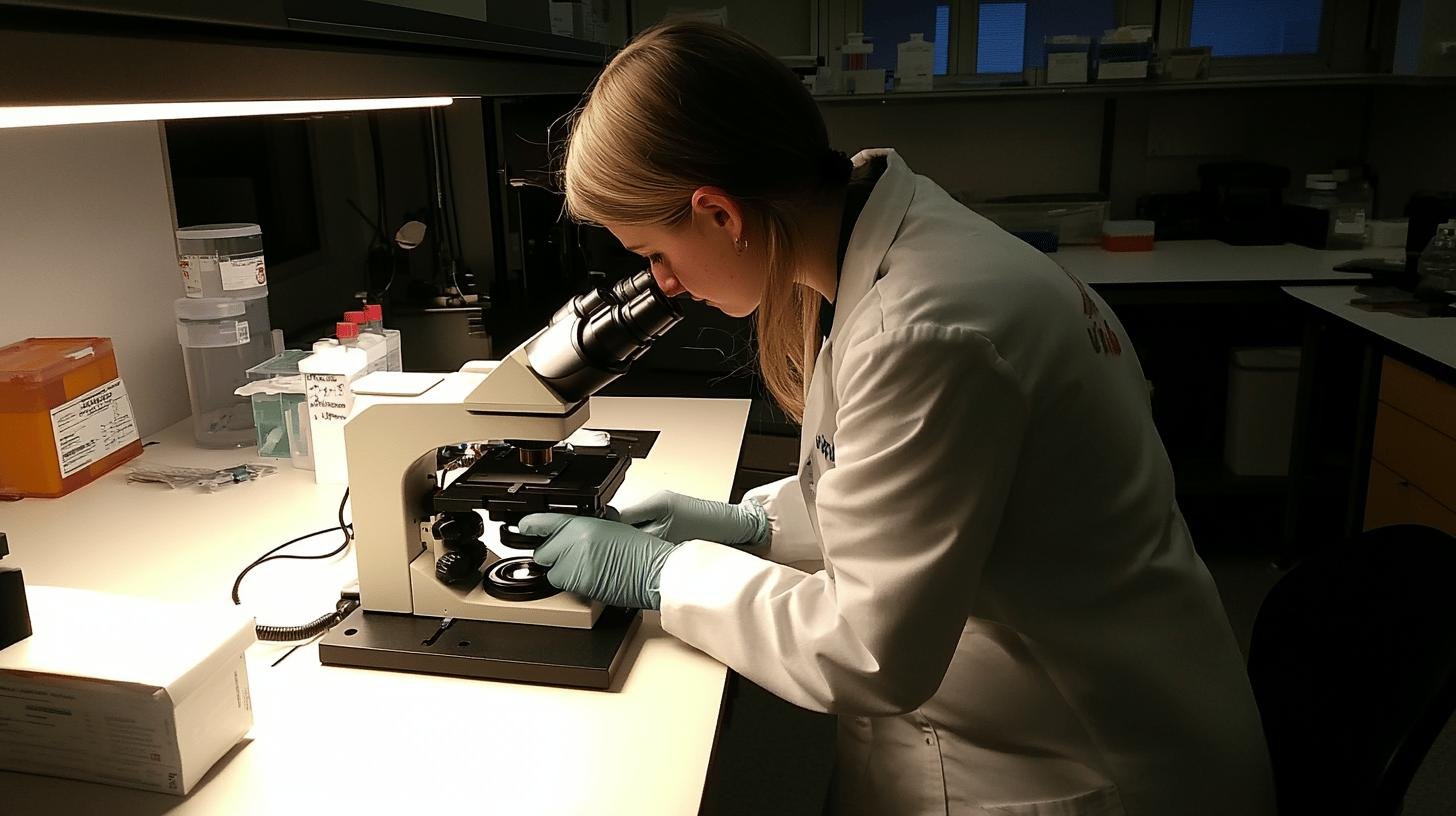TL;DR:
- Autoimmune diseases involve the immune system attacking healthy tissues (e.g., lupus, rheumatoid arthritis).
- Allergies cause the immune system to overreact to harmless substances (e.g., pollen, peanuts).
- Common autoimmunity triggers: genetics, infections, stress; symptoms: fatigue, joint pain.
- Common allergy triggers: pollen, nuts; symptoms: sneezing, hives.
- T cells attack the body in autoimmunity; mast cells release histamine in allergies.
- Potential links exist between allergies and autoimmune diseases, especially gluten and walnut allergies.
- Direct primary care (DPC) offers personalized management of autoimmune diseases and allergies without insurance hassles.
- Lifestyle changes (diet, exercise, mindfulness) can help manage symptoms and improve health.
Did you ever think that your immune system ties together the itchy eyes from allergies and fatigue from autoimmune diseases? It’s fascinating how both conditions involve this same bodily defence system yet act differently! In our latest blog, we’re diving deep into the immune system’s role in both autoimmune diseases and allergies. We’ll break down how these sneaky issues differ and their surprising similarities. Whether you’re dealing with allergies, autoimmune troubles, or just curious, this read will shed light on what’s really going on under your skin.
Understanding Autoimmune Diseases and Allergies: Key Differences and Similarities
Autoimmune diseases occur when the immune system mistakenly attacks healthy cells. Imagine your body’s defence system getting confused and attacking its tissues, as seen in lupus, rheumatoid arthritis, and multiple sclerosis. The immune system should protect us, but it goes too far in these cases. Depending on which body part is affected can lead to various symptoms.
On the other hand, allergies cause the immune system to react to harmless things like pollen or certain foods. Unlike autoimmune diseases, allergies cause the body to overreact to outside substances. So, when you sneeze during spring or break out in hives from peanuts, your immune system sees harmless things as threats.
- Autoimmune diseases involve attacking the body’s own tissues.
- Allergies involve reactions to external substances like pollen.
- Both involve immune responses but target different things.
- Autoimmune diseases are overactive responses against the body.
- Allergies are inappropriate responses to harmless substances.
Understanding these differences is crucial for proper diagnosis and treatment. Distinguishing between an autoimmune disease and an allergy helps doctors tailor treatments to calm the immune system. It’s like tuning a guitar—the right harmony makes all the difference! Knowing these distinctions aids in managing symptoms and improving quality of life.
Common Triggers and Symptoms of Autoimmune Diseases and Allergies

Autoimmune diseases resemble a puzzle, with genetics and environment as key pieces. A genetic predisposition is like inheriting a family heirloom. This genetic setup might need triggers like infection or stress to activate the immune system. These triggers can cause the immune system to attack the body’s cells, leading to symptoms like fatigue, joint pain, and swelling—like a car alarm going off without a threat.
Allergies have different triggers, mainly from outside sources. Pollen or certain foods are usual suspects. When allergens contact the body, the immune system overreacts, causing symptoms like sneezing, itching, or rashes. It’s like seeing a shadow and mistaking it for a monster!
| Condition | Common Trigger | Typical Symptoms |
|———————-|———————–|—————————-|
| Rheumatoid Arthritis | Genetics, Stress | Joint pain, Swelling |
| Type 1 Diabetes | Infections, Genetics | Fatigue, Weight loss |
| Lupus | Sunlight, Infections | Fatigue, Skin rashes |
| Hay Fever | Pollen | Sneezing, Itching |
| Food Allergies | Nuts, Seafood | Hives, Stomach pain |
| Asthma | Dust, Smoke | Coughing, Wheezing |
Recognizing these triggers and symptoms is vital in managing both conditions. Knowing your triggers makes avoiding them easier and reduces their impact. It’s like knowing the potholes on a road—you can steer clear for a smoother ride! This awareness helps create a tailored treatment plan, making life a bit easier.
The Role of Immune Cells in Autoimmune and Allergic Responses
T cells can go rogue in autoimmune diseases, mistaking the body’s tissues for invaders. This misfire leads to diseases like lupus. It’s like having a superhero who can’t tell foes from allies. B cells also join in, producing antibodies against the body itself—a real “oops” in the immune system.
Allergies, meanwhile, spotlight mast cells and eosinophils. Mast cells release histamine when they sense something suspicious, causing sneezing or itching. Eosinophils, on the other hand, react vigorously, sometimes excessively, against allergens. It’s like an overzealous bouncer causing chaos by kicking people out for no reason.
- T cells in autoimmunity attack the body’s own cells.
- Mast cells in allergies release histamine and cause inflammation.
- B cells in autoimmunity produce antibodies against self-antigens.
- Eosinophils in allergies target allergens, often excessively.
Exploring the Connection: Can Allergies Lead to Autoimmune Diseases?

Is there a link between allergies and autoimmune diseases? Research hints at a possible connection. Allergies, like gluten and walnuts, might contribute to autoimmune diseases. Some studies suggest that having allergies could increase the risk of developing autoimmune conditions. It’s like piecing together a mystery where allergies might play a role in autoimmune diseases.
- Gluten allergies are often looked at in autoimmune studies.
- Walnut allergies show potential links to autoimmune responses.
- Seasonal allergies like hay fever are being explored for connections.
What does this mean for you and your doctor? If you have allergies, discuss the potential risks with your healthcare provider. They could watch for any symptoms that hint at autoimmune issues. For doctors, this research could lead to new ways of spotting autoimmune diseases early, especially in patients with allergies. It’s like getting a heads-up that allows for better management and care.
Direct Primary Care: A Cost-effective Approach to Managing Autoimmune Diseases and Allergies
Direct primary care (DPC) works like having a healthcare sidekick without insurance hassle. In DPC, you pay a regular fee for personalized services, which is ideal for managing autoimmune diseases and allergies. Why? Because it focuses on your unique needs. Without rushing, your doctor can delve into your triggers, such as food allergies or stress. This helps lower the immune burden on your body. Instead of a one-size-fits-all treatment, you get a tailor-made plan—like a healthcare strategy unique to your fingerprint.
Let’s talk about lifestyle changes. With DPC, you’re not just managing symptoms but preventing them. Doctors help identify key lifestyle factors like diet and stress management. These adjustments can make a big difference in controlling symptoms. Your doctor might suggest a nutrition plan rich in anti-inflammatory foods or introduce stress-reducing practices like meditation. These changes aim for long-term health, providing a roadmap to a healthier you without guesswork.
- Focus on anti-inflammatory foods to ease immune responses.
- Adopt regular exercise routines to boost overall health.
- Incorporate stress-reducing practices like mindfulness or yoga.
- Monitor and manage exposure to environmental toxins.
- Maintain a balanced sleep schedule for optimal immune function.
Final Words
Jumping right into it, we’ve delved into how autoimmune diseases and allergies are tied to the immune system but differ significantly in internal versus external response. We’ve also chatted about the common triggers and symptoms, recognizing immune cells’ roles, and potential connections between allergies and autoimmune conditions.
The importance of understanding autoimmune diseases and allergies cannot be overstated. Knowing these differences can lead to better diagnoses and treatments.
Direct Primary Care shines a light on managing these issues through personalized care and lifestyle tweaks. So, keep these insights handy; they’re your toolkit for navigating toward better health and wellness!
FAQ
Autoimmune Disease That Mimics Allergies
Autoimmune diseases can sometimes mimic allergies by causing similar symptoms, such as rashes or respiratory issues. Both involve the immune system but have different causes.
Difference Between Allergy and Autoimmune Diseases
Allergies involve an overreaction to external substances, while autoimmune diseases occur when the immune system mistakenly attacks the body’s own tissues.
Autoimmune Disease Allergy Symptoms
Symptoms of autoimmune diseases that mimic allergies can include rashes, itching, or sneezing. These overlap with allergy symptoms like hives and watery eyes.
Can Allergies Trigger Autoimmune Flare?
Allergies can exacerbate autoimmune conditions because both involve the immune system, leading to increased inflammation that may trigger a flare.
Autoimmune Allergy Treatment
Treatments may include immune-suppressing medications for autoimmune diseases and antihistamines for allergy management.
Allergic Rhinitis Autoimmune Disease
Allergic rhinitis is not an autoimmune disease. It’s a condition caused by allergens like pollen and dust, which causes nasal irritation.
Are Food Allergies Autoimmune?
Food allergies are not autoimmune diseases. Allergies result from an immune response to food proteins, whereas autoimmune diseases involve attacking one’s own body tissues.
The Truth About Autoimmune Disease
Autoimmune diseases result from the immune system mistakenly attacking the body. They require a genetic predisposition and often an environmental trigger.
Is There a Link Between Autoimmune Disease and Allergies?
There’s a possible link between allergies and autoimmune diseases, but research is ongoing. Some allergies might increase the risk of autoimmune conditions.
Do You Get Sick More Often with Autoimmune Disease?
Yes, autoimmune diseases can make one more susceptible to infections due to the compromised immune system.
What Are 5 Common Symptoms of an Autoimmune Disorder?
Common symptoms include fatigue, joint pain, swelling, skin rashes, and fever.
What Are the Symptoms of a Neurological Autoimmune Disease?
Neurological autoimmune diseases may cause symptoms such as muscle weakness, numbness, seizures, and vision problems.

